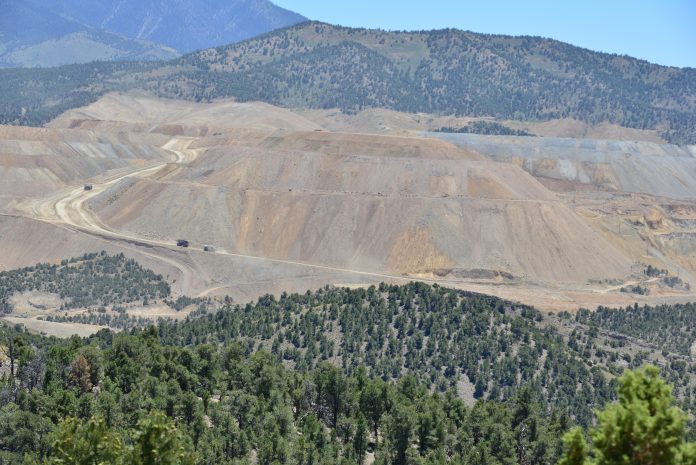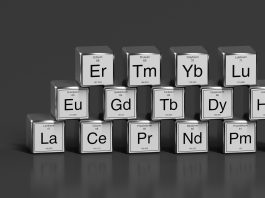Caleb Cage, Principal of Arc Dome Strategies, LLC, outlines the battery metals mining sector in Nevada and discusses the state’s potential in the global battery materials supply chain.
For over 150 years, the state of Nevada in the western region of the US has established itself as a geographic region of great mineral wealth, and the sector continues to be an essential contributor to its economy. Best known for its production of gold, silver and copper, Nevada is also a significant source of minerals such as lithium, iron, and molybdenum – all key materials for use in batteries and modern technology. More than 12,000 people are directly employed by the Nevada mining industry, predominantly in rural Nevada, and earn some of the highest annual salaries in the state.
Sustainability is also a key commitment of Nevada’s modern mining industry and the sector takes thorough steps to ensure the protection of the region’s land, air, water, and wildlife. Before operations begin, mines must go through rigorous phases of study and permitting, focused on mitigating and eliminating potential environmental concerns.
The Innovation Platform spoke with Caleb Cage, Principal of consultancy firm Arc Dome Strategies, LLC, to find out more about the battery metals mining sector in Nevada and the state’s potential in the global battery materials supply chain.
What is Nevada’s potential for battery metals mining and development?
Nevada is quickly becoming a leader in the global battery supply chain, with major developments in mining and battery materials. The essential onshoring of battery making is robust in Nevada. This economic development includes everything from mining the mineral, processing it into high-purity battery-grade chemicals, making cathodes and battery cells, manufacturing battery packs, and recycling the batteries when they expire after many years of use. Great examples of the US securing its future in metals mining include Nevada’s Thacker Pass Project, which is fully permitted and going into production soon; the Rhyolite Ridge development, which is moving through the permitting process; the operating Panasonic and Tesla battery pack facilities; and Redwood Materials, which is making cathodes and recycling used batteries.
How important is mining activity to the economic prosperity of Nevada?
Mining has been incredibly important in Nevada since the Silver State’s founding in 1864. Many of our first communities within the territory or the state were created due to mining activities and supporting endeavours. Today’s mining industry is vastly improved and more sophisticated than the state’s founding industry. The mining industry in Nevada employs over 40,000 people in family-supporting jobs that focus on providing the raw materials we need while ensuring operations are carried out safely and environmentally responsibly. In addition, the mining of battery materials here leads to further developments, like battery processing and manufacturing, that are diversifying and stabilising our economy. Mining critical minerals, particularly battery minerals, is an important part of Nevada’s economic development strategy.
What role does Nevada play in the global battery materials supply chain?
Nevada is the only state in the nation that has companies in all seven stages of the battery material supply chain. We have mining companies that are producing or will be soon producing, chemical engineering companies, battery assembly and manufacturing, recycling, and other parts of the supply chain. This, plus Nevada’s wealth in mineral resources, makes Nevada a centre of innovation and investment in this space. All of this accelerates Nevada’s position in the national supply chain, but also as a key incubator of essential technology and scientific methods that will help meet the nation’s goals.
How is Nevada working with organisations and initiatives in the US and around the world to further mineral development and strengthen battery metals supply chains?
Individual companies across Nevada’s supply chain work directly with global partners and national organisations regularly to meet their needs. We recently announced efforts to form the Nevada Battery Coalition, which would bring together all of these companies to highlight the importance of our industry in Nevada and identify opportunities going forward.
Are there any challenges facing the development of Nevada’s battery metals supply chain? If so, what is needed to overcome them?
There are always challenges, especially when standing up a new industry. There are regulatory barriers, funding barriers, amongst other factors. Addressing these and other challenges head on is what is making Nevada battery businesses exceptional. Companies in Nevada have shown the importance of this industry to our state and national economies, to local communities, to address climate change, and to secure our national defence. The results are clear, both in terms of production in our state and also in this issue being elevated on the national agenda with respect to policy, grants, and co-ordination.
Caleb Cage
Principal
Arc Dome Strategies, LLC
Please note, this article will also appear in the thirteenth edition of our quarterly publication.









